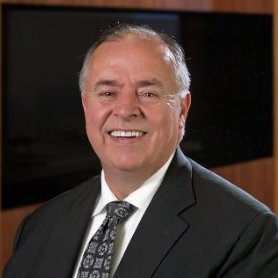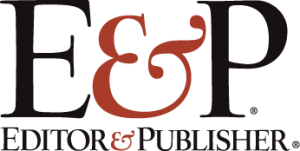When I was a young reporter in New Mexico, my distraught editor returned to the office after attending the funeral of a friend.
The man had died in a traffic accident on what was known as “the Big I,” the interchange where Interstates 40 and 25 crossed in the center of Albuquerque. Driving through it made one feel like an ant on a grapevine.
The next day, the city editor handed me a note that the editor wanted me (the police reporter who covered traffic) to write a story that would say the Big-I was “a deathtrap” that needed to be replaced. I diligently did my reporting, talking to law enforcement and engineering traffic experts and studying records of accidents there. My sources concluded that the interchange design was adequate, and driver inattention, speeding and drunken driving had been the major causes of the accidents there.
My story never ran.
But another one did. Days later, I picked up our paper to find a banner headline that read: “Cottrell: Big I ‘a deathtrap.’” (Cottrell was Marion Cottrell, city council president, and a friend of the editor and the deceased).
I am sure I am not the only young reporter who has learned the lesson—news is what your editor and his or her friends decide it is.
I am reminded of this tale as I watch the rise of Donald Trump and the hand-wringing by major journalists who “didn’t see it coming.”
Well, of course not. If you never leave the Beltway or the Washington-to-New York corridor; if you never attend a networking event with a small business owner; if you never go to a soccer game with a lot of middle-class parents; if all your ethnic minority friends are living in the upper 20 percent—then, yes, you were going to miss the rising popularity of Donald Trump.
There is no better example of American journalism talking to itself while missing the biggest story in national politics in decades.
Among the best mea culpa commentaries was the one from the New York Times David Brooks: “I was surprised by Trump’s success because I’ve slipped into a bad pattern, spending large chunks of my life in the bourgeois strata—in professional circles with people with similar status and demographics to my own. It takes an act of will to rip yourself out of that and go where you feel least comfortable.”
Brooks is no worse than many journalists in this intellectual corridor for the past 50 years. Any medium-or small-town editor who attended an American Society of Newspaper Editors convention in Washington knew immediately that he or she was a guest on someone else’s turf. It’s been obvious for decades that conversations inside this bubble of media and lobbyists and politicians missed so much of what was happening in the remaining 98 percent of the country.
Huge demographic chunks of America are angry because its middle class is disappearing. Average income is falling. Personal wealth is declining. The only group that seemed to be doing well, according to this view, is the Washington fat cats. And the media was a big part of that privileged cabal.
Many voters think Trump can fix this, and it would not take much reporting to find those voters. But it takes effort and, with some exceptions, the campaign reporting has been about the circus and not about the substance. E&P editors have asked me to make this column helpful to editors and not just scold them, so let’s look at what all editors (including the Washington cognoscenti) ought to be doing.
- Look at how you spend your time during the week (off-hours count too). Do you spend at least 20 percent of your time with real people? Folks without official titles? School teachers instead of school board members?
- How many of you are answering your own phones or diligently returning calls from readers? Emails from someone who used to subscribe?
- Look at those answers. Are they defensive? Are you justifying everything you’ve done, or truly listening to what someone else has to say?
- Do you spend as much time listening and understanding those with whom you disagree? Whatever your political beliefs are, shouldn’t a professional journalist be constantly challenging them?
The media hand-wringing over the ascension of Donald Trump reminds me of a lazy rancher who fails to fix the barn gate and laments the runaway stallions. You’re not doing your job if you’re talking only to your friends.
Tim Gallagher is president of The 20/20 Network, a public relations and strategic communications firm. He is a former Pulitzer Prize-winning editor and publisher at The Albuquerque Tribune and the Ventura County Star newspapers. Reach him at [email protected].




